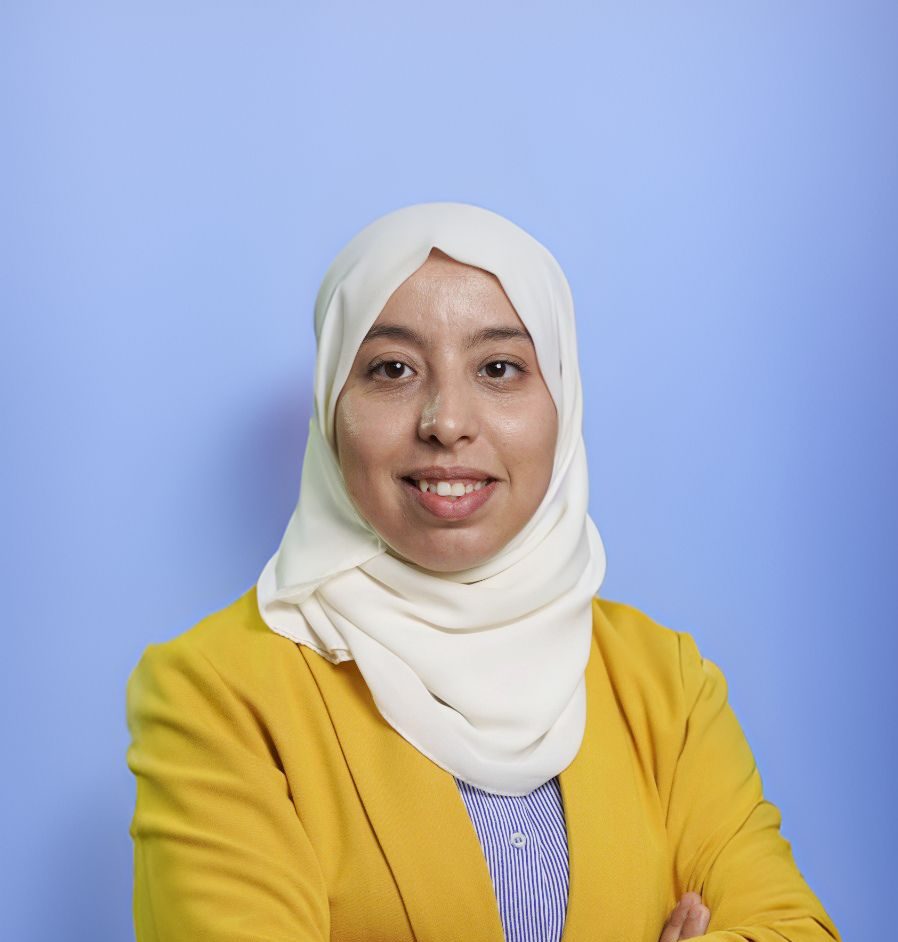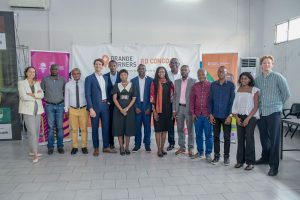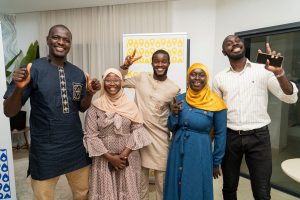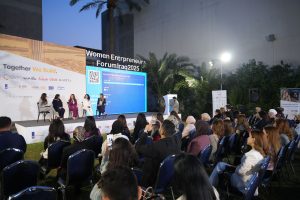Meet Keltouma Chahidi, Orange Corners Morocco alumna and founder of L’Workshop. This forward-thinking startup has the ambition to revolutionise the educational landscape in Morocco and beyond through the seamless integration of traditional learning tools with innovative technologies such as AR and VR. Her mission? To create immersive, engaging educational experiences that spark curiosity and enhance learning outcomes for children across diverse settings. We spoke to Keltouma about her business, empowering youth, fostering regional innovation ecosystems, and ensuring that children in rural areas have equal access to enriching learning experiences.
Keltouma, welcome! Could you introduce yourself and your business?
I’m Keltouma, founder of L’Workshop. We combine traditional tools, such as books and cards, with new technologies like AR, VR and interactive projection to create interactive educational materials. We work with schools and museums, but also with several international NGOs. Currently we’re developing a platform to introduce children to scientific subjects through immersive reality. Through 3D models with sound effects, we aim to improve how kids learn about these subjects.
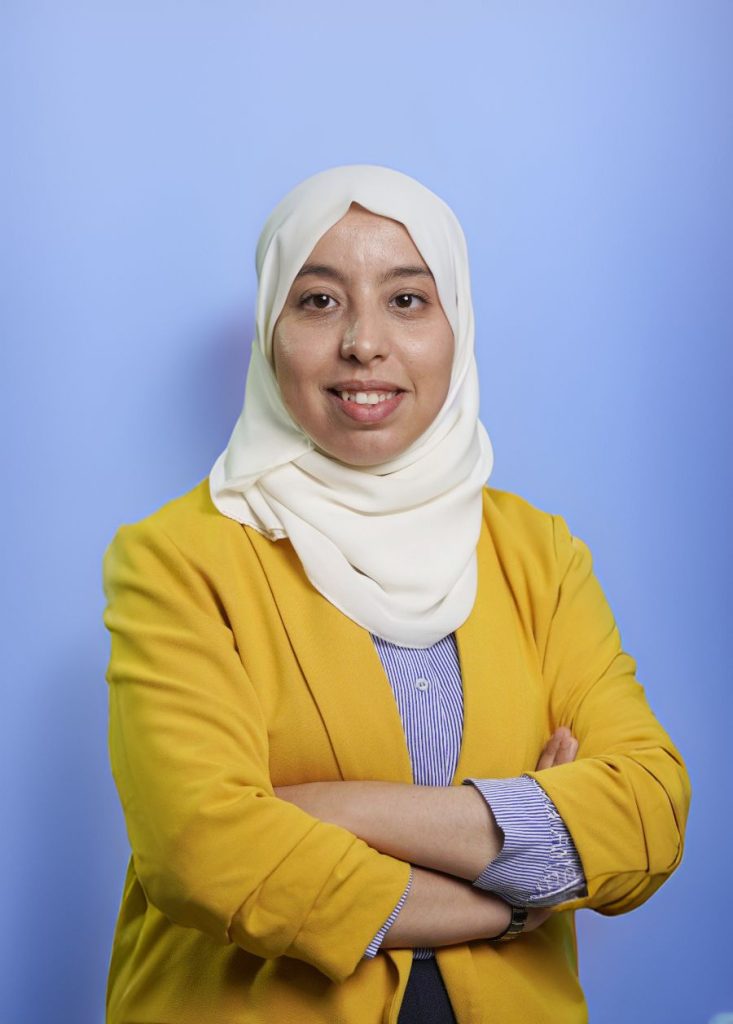
Are schools in Morocco generally open to experiment with innovative teaching methods and tools such as yours?
In Morocco, there are public and private schools. Private schools have more freedom to work outside the system and are generally more open to experiment with things like smartboards or innovative workshops. There’s a lot of initiative in these schools to work on new teaching methods and technology. But also in public schools there’s more and more willingness to introduce digital and innovative ways of learning. For example, recently there was a project called Digital Lab of Education, which aims to finance the development of innovative tools for public schools. Digital homework platforms for example, or platforms for communication between schools and students.
In general, there’s quite a few countries in the Middle East that are experimenting with new ideas, supporting initiatives such as ours. Introducing AR and VR, even introducing new themes such as robotics. And some are really quite advanced not just in the way they introduce technology, but also in the theory and methods they use to teach children. How they deal with classrooms, evaluate students, communicate with parents.
Young people need know that there are a lot of opportunities out there
Keltouma Chahidi, founder of L’Workshop
Fascinating! So we met earlier this week at the Yes!MENA summit, where you participated in a youth panel. How was that experience, and what was the main message you were hoping to get across to the audience?
I was invited as a graduate of the KAWALISS programme, which is run by the Hiba Foundation and financed by the European Union. I not only had the opportunity to share more about my startup L’Workshop, but also speak on stage about challenges we face as young people to make an impact on employment and in society in general. Our booth was a good opportunity to introduce my startup, get feedback, connect to potential partners. It was a great way to start the conversation with a lot of people that have an interest in improving employment opportunities and helping young entrepreneurs.
With regard to my main message.. I think it’s important that young people know that there are a lot of opportunities out there. I don’t want them to be stuck thinking “I have to study this specific subject in this specific school, getting this specific grade”. Certain career paths, like becoming a doctor or engineer, are often emphasised, but there are many other fulfilling and impactful options. Lately we hear more about entrepreneurship, but that wasn’t the case at all when I went to university. I want young people to realise that there’s other options. We can have jobs, create small businesses, work in our family businesses. But also to distinguish real opportunities and fake opportunities.
There are individuals on social media who promote misleading ideas, creating unrealistic expectations for young people. We need to protect young people from these fake opportunities, get them to see what’s happening in the real world. Who’s creating an impact, adding value. Because if we don’t, young people lose their confidence, get desperate. They start thinking they might be the problem when they see others achieving things they don’t have: houses, cars.
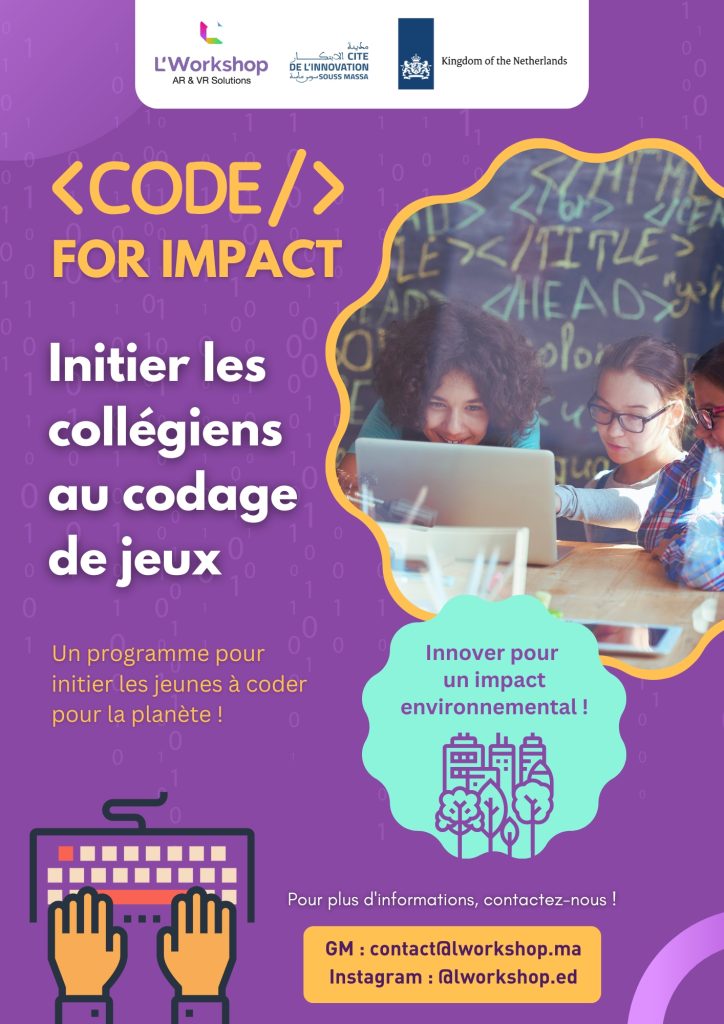
That’s a lovely message! And for you personally, what’s your main takeaway from the summit?
My main takeaway is that people are eager to listen to young people and also very eager to help. A lot of people gave me contacts, introduced people to my business. It’s important for us as entrepreneurs to attend events like this, not just to find partners or clients, but also to share our challenges. Because maybe there’s someone that can help us. I found a lot of people really willing to do this, to give real feedback and support.
And I’m ever more motivated to work on one of the projects I talked about on stage, Code For Impact. It’s a training for middle school students on coding and creating games, which I’m developing with the Netherlands Embassy in Morocco and the Cité d’Innovation Souss-Massa. Our pilot will run with 15-20 students from public schools, but our aim is to scale afterwards of course. Our goal is to open their mind to jobs in development, but also to let them think about how they can make an impact with their work. How they can stop being just consumers of technology, and start creating real impact.
And after seeing all the energy people have towards solving unemployment and supporting young people, I feel even more motivated about giving back. I’ve been supported by programmes such as KAWALISS and Orange Corners, and although I’m still a small startup and still have a lot to learn.. it’s my turn to start giving back.
Although I’m still a small startup, it’s my turn to start giving back
Keltouma, L’Workshop
One of the themes you spoke about on stage was the importance of providing opportunities to young people in rural areas. Do you also develop projects for that with L’Workshop?
Oh yes! We have other projects such as Le Petit Museum Mobile, which is a small museum where we use interactive technologies to introduce concepts such as art and culture. Because often children in rural areas don’t have access to museums, art exhibitions and things like that. I want to expose their minds to what other opportunities are out there. Because everyone is different, they have different skills, different dreams. When we create programmes, we need to take all of that into consideration, and help them find opportunities in or near their villages. Fortunately today there are smartphones. A lot of skills can be learned online these days. With access to smartphones and the internet, there are many new opportunities for children in rural areas. However, systemic challenges also need to be addressed to ensure equitable access and support.
With access to smartphones and the internet, there are many new opportunities for children in rural areas
Keltouma, L’Workshop
You also mentioned that people from the South of Morocco often need to travel to Casablanca for events like this. Is there also a regional startup ecosystem in Agadir, where you’re based?
There is, yes! We have a lot of startups working with technologies related to agriculture and tourism, as those are the most important economic sectors in the region. Some digital agencies, e-commerce startups. And we’ve got the Cité d’Innovation I mentioned before, and the TechnoPark. They support a lot of very creative, innovative startups and also share information regarding opportunities or events in Agadir, but also in Casablanca and Rabat. Efforts are being made to ensure that startups across regions can access similar opportunities, though challenges in regional accessibility remain. And Orange Corners is definitely also proof to what young people in the region can do. There are very talented, skilled and motivated entrepreneurs with businesses that serve the region and create opportunities for other young people in Agadir.
Orange Corners is definitely also proof to what young people in the region can do
Keltouma, L’Workshop
One of the standout features of Orange Corners in Morocco is that it’s a travelling programme, which instead of just focusing on the main economic centres also visits regions such as Agadir. As an Agadir-based entrepreneur, how important is this approach in your opinion?
It’s super important! Orange Corners does a really great job in gathering entrepreneurs from one region, which allows them to think about their challenges and the opportunities they can create together in their own region. When I meet entrepreneurs from Casablanca for example, I have a completely different conversation as when I meet entrepreneurs from my own region. With the entrepreneurs from my own region, we brainstorm about topics such as how to improve the local ecosystem, create more opportunities, organise events and get togethers. We share the same challenges.
I’m still in touch with all the entrepreneurs that have gone through the programme with me. I value their advice even higher than that of experts. The expert might give me an answer, but not always in a way that I can also implement it. Other startups will often have experienced the same challenge, and have already thought about practical solutions in a way a small startup would solve this problem.
But the training we received was very valuable. We were provided with experts on different topics, which was very important at the stage when you’re still trying to figure things out. Like how to create a business model, or the legal aspects around creating a small business. Orange Corners connected us with a lot of experts from the region, which is super important, because we can still contact them today, try to learn as much as possible from them.
Programmes like Orange Corners say something about the support available for young entrepreneurs in Morocco, how their potential is recognised and how they’re helped in many different ways. Orange Corners provides training and funding, others cover the costs of participation in events inside and outside Morocco. This is all super important, because we really want to present ourselves to the world. Our vision is to expand to the MENA region and other Francophone countries in Africa, with whom we share a lot of similarities and challenges in our educational system. But there’s a cost attached to this. Having a stand at a big international event costs a lot of money, as do travel expenses and participation.
I’m very grateful for all the support I received from Orange Corners, the Netherlands Embassy and all the other organisations who saw the potential in our work and encouraged us. They provided us with the best resources possible, connected us with the best people possible. And we kept this relationship even after Orange Corners. Their ongoing support and willingness to ask if we need anything is deeply appreciated. And maybe in return, we can offer help and expertise to other projects, to people younger than us.
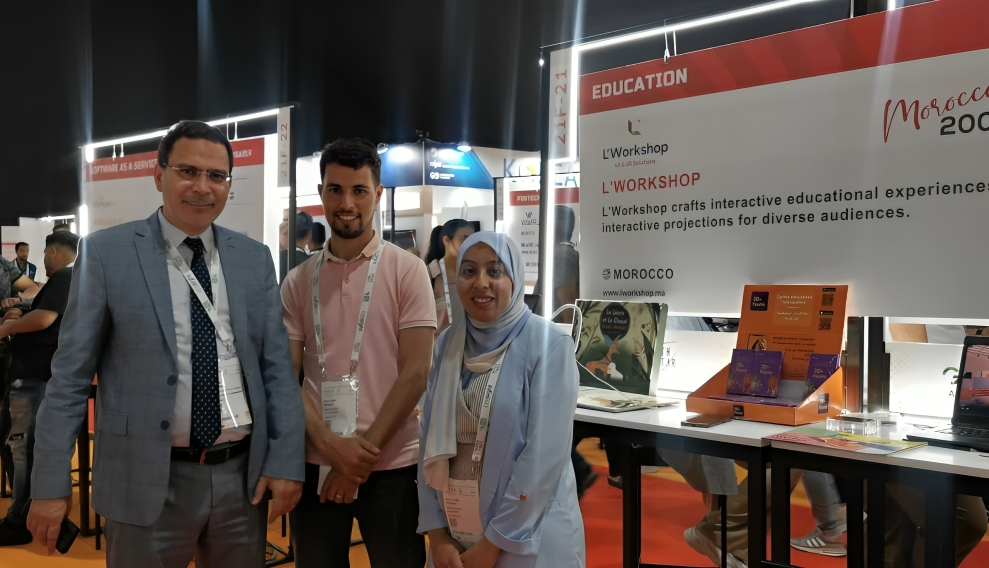
In addition to the support you’ve already received.. What does L’Workshop need most right now?
We’re hoping for more partnerships with NGOs to be able to implement our projects in different parts of the country. Streamlining the processes for collaboration between NGOs and small companies could enable impactful partnerships, leveraging each other’s strengths to maximise reach and effectiveness. From a funding perspective, it’s easier for them to work with other NGOs. They’re doing great work, and with our technical skills, knowledge and experience we can complement their skills and resources. If we could find a way of making this easier, we could create so much impact together!
Follow Keltouma’s journey with L’Workshop online:
Website
Facebook
Instagram
LinkedIn

